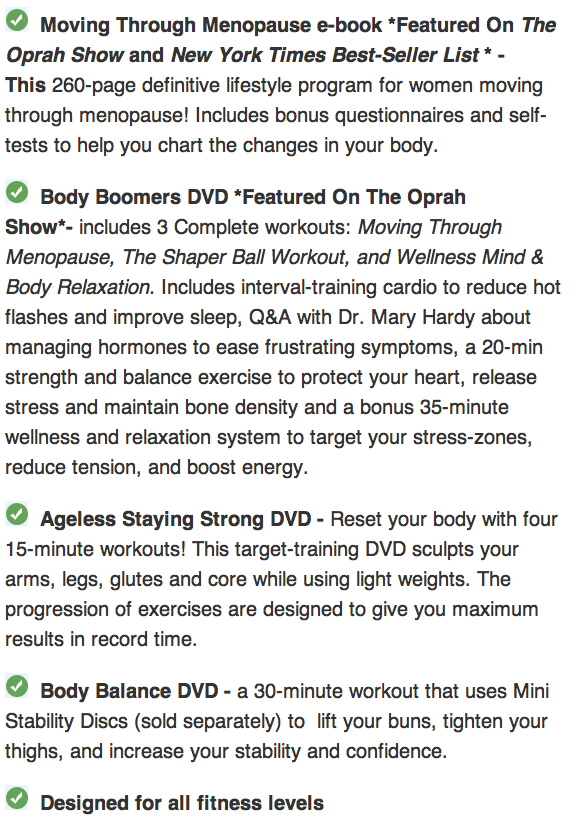Q&A: What Exercise Can Reduce Hot Flashes?
If you’re in the middle of a hot flash or feeling irritable, cover your ears! With everything else going on, the last thing you want to hear about is a sweaty cardio workout. But the truth is, we can’t afford to ignore the fact that heart disease is the number one killer of women. More women die each year of cardiovascular-related diseases than all female cancers…combined!
With the loss of estrogen during menopause, harmful LDL levels tend to creep up, while good HDL levels increase. Now, this imbalance cases plaque build-up in the arteries, which increases the risk of:
- High blood pressure
- Stroke
- Heart attack
Lack of exercise is a big risk factor! Sedentary women are 3x more likely to die of heart attacks than women who exercise regularly. Cardiovascular exercise protects the heart by decreasing harmful cholesterol, and increasing good cholesterol. It also strengthens your heart by improving vascular elasticity…this will help reduce high blood pressure.
When you’re having hot flashes and not sleeping, exercise may be the last thing you want to think about. Listen, as somebody who’s experienced a few menopause-related sleep problems herself, I can relate! But, I’ve found that there’s nothing like a good workout to keep me going through the day, and help me sleep better at night.
Not convinced? Along with protecting your heart and bones, cardiovascular exercises provide the following benefits:
- Protect against heart health
- Help maintain bone density
- Lifts mood
- Boosts energy
- Releases stress
- Burns calories and fa
- Sparks libido
- May reduce hot flashes
- Improves sleep
- May reduce menstrual irregularities
You decide the way you want to feel! Are you ready? Start with the cardio workout above, and then build onto it with your favorite aerobic exercise.







I found that the best way to relieve hot flashes was to manage stress levels consistently. Keeping stress levels to a minimum calms the adrenals and thyroid; allowing them to produce female sex hormones when the ovaries no longer do.